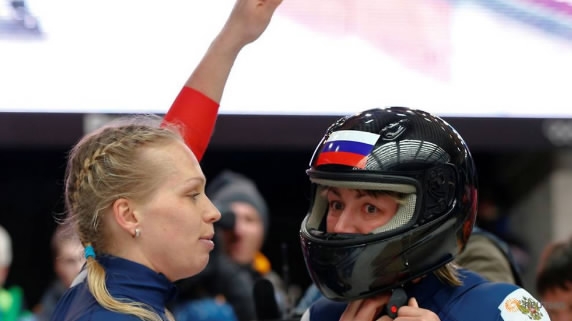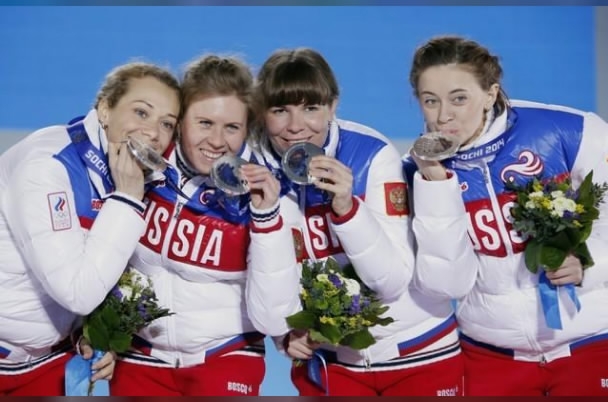
Sports
09:12, 28-Nov-2017
Five more Russian Olympians banned in doping scandal
CGTN

Five more Russian competitors from the 2014 Sochi Olympics were banned for life over anti-doping rule violations on Monday with the International Olympic Committee saying Russia’s former anti-doping chief-turned-whistleblower was telling the truth.
The banned athletes include Dmitrii Trunenkov and Aleksei Negodailo, both in the gold-medal winning four-man bobsleigh team, plus biathlon relay silver medalists Yana Romanova and Olga Vilukhina, who also won silver in the 7.5 km event.
The latest bans bring the total number of Russian athletes suspended from the Games for life to 19 this month, with the IOC annulling results following widespread doping and tampering with samples of Russian athletes during the Sochi Games.
The IOC also published its reasoning behind the lifetime ban of the first Russian to be sanctioned as part of its investigation, cross-country gold medalist Alexander Legkov.
The IOC said it was proven that Legkov was part of a scheme to tamper with the samples of Russians at Sochi.

Russian silver medalists Olga Zaitseva, Yana Romanova, Ekaterina Shumilova and Olga Vilukhina (L-R) pose on the podium during the victory ceremony for the women's biathlon 4 x 6km event at the 2014 Sochi Winter Olympics, February 22, 2014. /Reuters Photo
Russian silver medalists Olga Zaitseva, Yana Romanova, Ekaterina Shumilova and Olga Vilukhina (L-R) pose on the podium during the victory ceremony for the women's biathlon 4 x 6km event at the 2014 Sochi Winter Olympics, February 22, 2014. /Reuters Photo
The Olympic body is re-testing all Russian athletes’ samples from those Games following revelations by Grigory Rodchenkov, former head of Moscow’s discredited anti-doping laboratory, of a scheme to cover up home competitors’ positive samples.
The IOC launched two investigations following Rodchenkov’s claims with one focusing on the Sochi Games re-tests and the other looking at allegations of systematic state-backed doping.
The IOC on Monday said that in Legkov’s case, evidence provided by Rodchenkov, now living in the United States, was used and deemed credible.
“The (IOC) Disciplinary Commission has come to the conclusion that, whatever his motivation may be and whichever wrongdoing he may have committed in the past, Dr Rodchenkov was telling the truth when he provided explanations of the cover-up scheme that he managed,” it said in its decision.
“The Disciplinary Commission would have preferred... to be able to hear Dr Rodchenkov in person. However, this does not alter its conviction that Dr Rodchenkov is a truthful witness and that his statements reflect the reality and can be used as valid evidence.”
The Sochi scandal, triggered by revelations made by Rodchenkov, is part of a broader doping affair that has led to the suspension of Russia’s anti-doping agency RUSADA, its athletics federation and Paralympic Committee.
The IOC has said it will decide during its executive board meeting next month on the participation of Russian competitors at the Pyeongchang Winter Olympics in South Korea in February.
Source(s): Reuters

SITEMAP
Copyright © 2018 CGTN. Beijing ICP prepared NO.16065310-3
Copyright © 2018 CGTN. Beijing ICP prepared NO.16065310-3